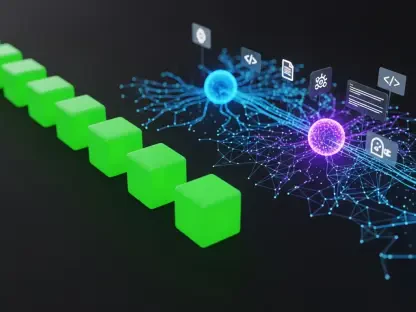The surge in artificial intelligence has sparked discussions on the best programming language for developing AI agents. Python, with its evolving features, has claimed a central position in this realm. This article presents a roundup of opinions and insights from industry leaders and experts who delve into how Python is shaping the future of AI agent development. From Google’s offerings to novel Python innovations, this roundup examines the multitude of resources that are currently redefining the field.
Python’s Historical Impacts and Future Potentials
Python’s journey from a simple scripting language to a staple in data science and AI domains continues to garner attention. Experts frequently emphasize Python’s streamlined syntax and robust libraries that make it an essential tool for AI tasks. As the AI landscape becomes increasingly complex, Python’s adaptability helps developers tackle various challenges effectively. Several thought leaders attribute Python’s prominent role in AI agent development to its community support and wide range of libraries, which aid in reducing development time and complexity.
Google Agent Development Kit and Cross-Language AI Creation
The Google Agent Development Kit has captured the interest of developers by facilitating AI agent development with both Python and Java. Some proponents highlight the kit’s comprehensive resources and user-friendly interface as major advantages. The debate persists, however, over Python’s performance compared to Java for certain high-efficiency tasks. Many argue that Python’s ease of scripting and vast ecosystem often outweigh performance limitations, while others see potential in combining Python’s agility with Java’s speed for optimal results.
Editable Installs: Streamlining Python Projects
Editable installs in Python demonstrate a significant leap in flexibility and efficiency for developers. This feature allows seamless code modification without constant reinstallation, thus speeding up development processes. In real-world applications, companies report increased productivity and smoother project iterations, leading to more timely deployments. Although concerns about compatibility and stability may arise, the general consensus remains positive, with developers eager to leverage these enhancements for rapid prototyping and iteration.
Innovations in Lazy Annotations and Type Hints
With the introduction of lazy annotations in Python 3.14, developers experience simplified coding and enhanced performance. These features provide a more streamlined approach to type hinting, reducing the complexity traditionally associated with specified data types. Industry feedback reveals diverse adoption rates, with tech hubs embracing these advancements more rapidly than others. The consensus suggests that lazy annotations may pave the way for cutting-edge coding techniques, though a minority still debate type hinting’s necessity.
Photoshop Integration with Python through PhotoshopAPI
PhotoshopAPI has opened a new frontier by providing better integration between Python and Photoshop workflows. Most professionals highlight visible performance gains when using this C++ library as opposed to traditional Photoshop APIs. The expert community believes this development may bridge the gap between digital media manipulation and AI possibilities, fostering a unified creative workflow. The advancements presented by PhotoshopAPI are seen as complementary, not redundant, enhancing the overall AI agent framework without compromising existing mechanisms.
Enhancing AI Capabilities: Strategic Tools and Techniques
The discussion on Python’s pivotal role in AI agent development sheds light on strategies and tools pivotal for harnessing its potential. Experts often recommend focusing on Python’s vast ecosystem, utilizing its libraries for machine learning, and adopting innovative features like editable installs for efficient development. Developers looking to apply these insights should start experimenting with Python’s newer features, including lazy annotations, to gain a competitive edge in AI projects.
Looking Back on Python’s Evolution in AI Development
Python’s sustained relevance and adaptability in AI agent development emerge as crucial themes in this examination. Its efficiency, ease of use, and vast resources have continually enriched AI capabilities, aligning with ever-evolving industry needs. As developers anticipate further innovations, the blend of Python’s traditional strengths with its ongoing enhancements presents a promising scenario for future AI endeavors. Engaging with Python’s expanding functionalities offers extensive opportunities for both aspiring and seasoned developers in the world of AI.









